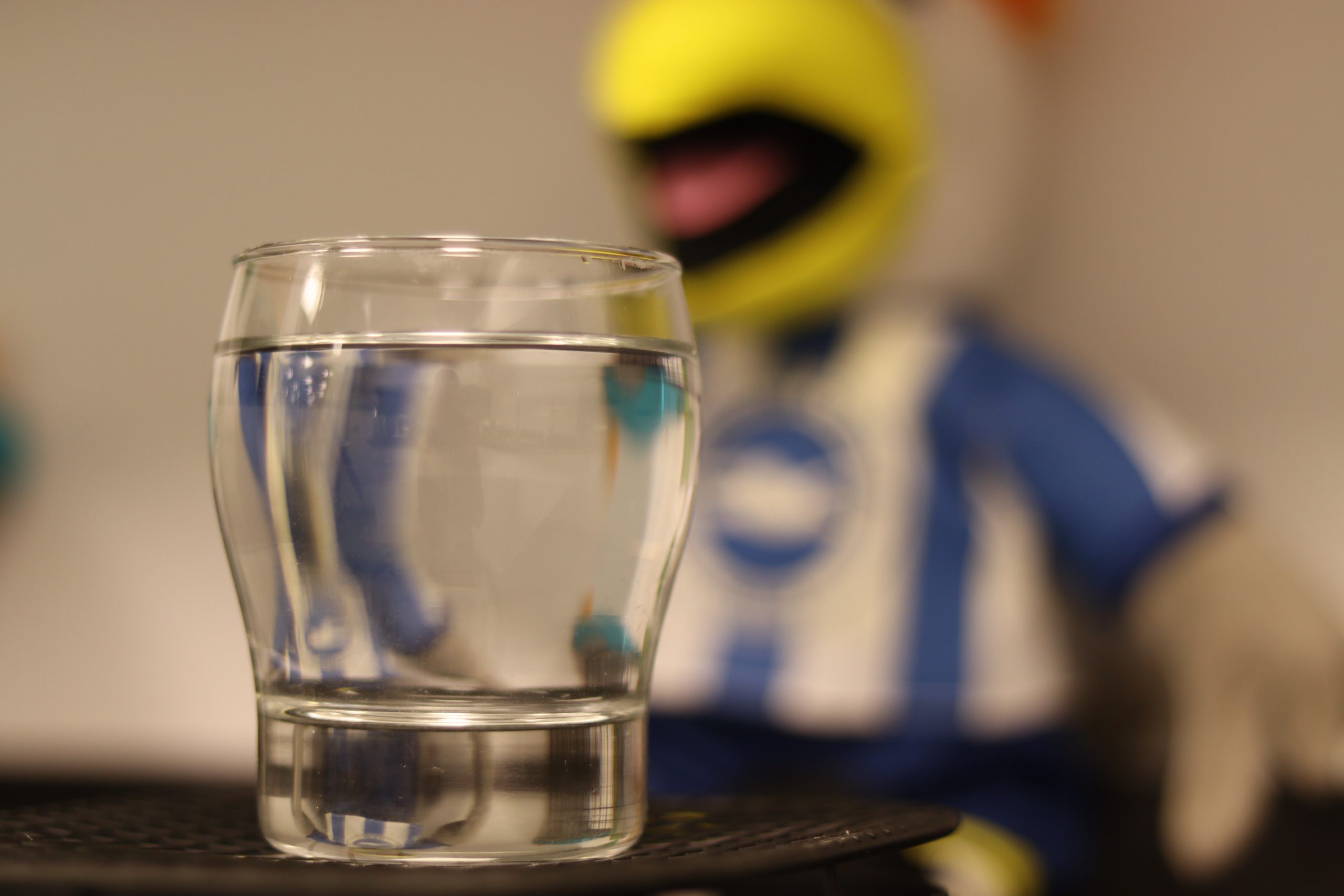How to stay hydrated – top tips from the AITC nutritionist

This week, we’re celebrating Nutrition and Hydration Week here at Albion in the Community.
Proper hydration is one of the most important parts of a healthy body, yet many people don’t drink enough water day to day.
Our nutritionist, Mari, has shared her top tips for keeping hydrated – plus which drinks you should be avoiding.
Mari’s Top Tips
Water is naturally lost from the body through urine and sweat.
When you lose more water than you replace, your body becomes dehydrated.
When playing football, being even a little bit dehydrated can have a negative effect on:
• How well you play
• How long you can play
• How quickly you recover
• How quickly you can make decisions in the game
You can check if you are dehydrated by checking the colour of your urine. If it is dark yellow, you are dehydrated.
How much fluid do I need every day?
Six to eight cups of fluid every day.
What counts?
Water, low fat milk and sugar free drinks. You can also include some juices and smoothies, but you must limit them
to no more than a small glass a day, as they can be high in sugar.
Coffee and tea should also be limited, as the recommended caffeine intake is no more than 2.5mg per kg of bodyweight per day.
So, for average 10-year-old that means one cup of tea.
What to drink and when to drink it?
Before you start to exercise, hydrate by drinking about 300-500ml of water before your training session.
During exercise, drink little and often every 15-20 minutes.
For exercise lasting less than an hour, aim to drink around 500ml of water per hour (more in hot humid weather or when
exercising very strenuously).
For very intense exercise lasting more than an hour you may need a drink that provides carbohydrate such as squash
or diluted fruit juice.
After exercising drink straight away to replenish any fluid losses. Water and milk are your best choices.
Milk is a popular
recovery drink among professional footballers and provides important nutrients like protein, carbohydrates, vitamins, and
minerals, helping you replenish nutrient stores naturally after training.
Sports drinks
Some people think they need to drink special sports drinks to be good at sport, but that’s not true. Sports drinks are only
needed if you exercise very hard, like elite sports people, for over an hour.
Energy drinks can be very expensive and are very high in sugar and caffeine which could lead to tooth decay and weight gain.
This article was written when our name was Albion in the Community. As of August 1 2023, we are the Brighton & Hove Albion Foundation.

